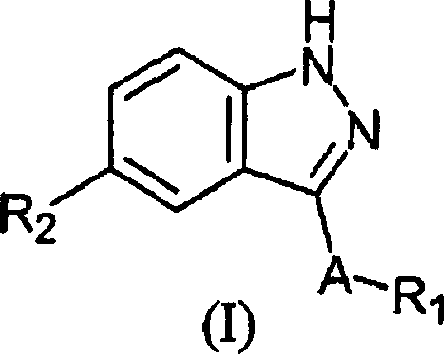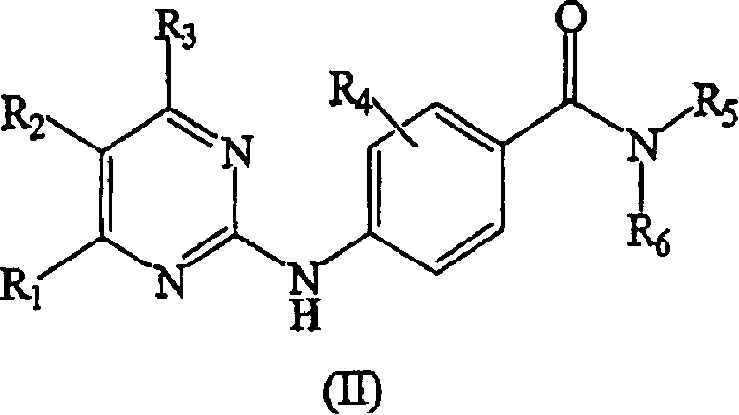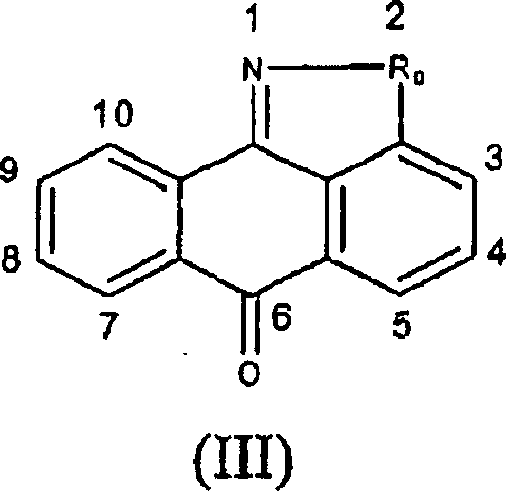Methods of using JNK or MKK inhibitors to modulate cell differentiation and to treat myeloproliferative disorders and myelodysplastic syndromes
A stem cell differentiation and cell technology, applied in the direction of biochemical equipment and methods, fusion cells, embryonic cells, etc., can solve problems such as no indication
- Summary
- Abstract
- Description
- Claims
- Application Information
AI Technical Summary
Problems solved by technology
Method used
Image
Examples
Embodiment 1
[0560] 5.1. Example 1: Effects of JNK or MKK Inhibitors on the Differentiation of CD34+ Progenitor Cells
[0561] The following assays were used to determine the effect of JNK or MKK inhibitors on CD34+ (hematopoietic progenitor) cell differentiation and colony forming unit (CFU) production. Remarkably, this analysis demonstrated that JNK or MKK inhibitors can specifically inhibit the production of erythropoietic colonies (BFU-E and CFU-E), while increasing the production of formed leukocyte and platelet colonies (CFU-GM) and enhancing total colony Production of forming units (total-CFU). The methods of the invention are thus useful for modulating the differentiation of stem cells, and also for stimulating the rate of colony formation, providing significant benefits in favor of hematopoietic stem cell transplantation by improving the rate of bone marrow engraftment and restoration of leukocyte and / or platelet production.
[0562] Cord blood CD34+ hematopoietic progenitor cell...
Embodiment 2
[0564] 5.2. Example 2: Effects of JNK or MKK Inhibitors on the Proliferation and Differentiation of Human Cord Blood CD34+ Cells
[0565] In the following examples, the effect of JNK or MKK inhibitors on the proliferation and differentiation of umbilical cord blood (CB) monocytes into CD34+ (hematopoietic progenitor) cells was investigated. Cord blood mononuclear cells are a mixed cell population including a small population of hematopoietic progenitor (CD34+) cells. A subset of this small CD34+ cell population includes a population of CD34+CD38+ cells (approximately 1% of total CB monocytes) and an even smaller population of CD34+CD38- cells (less than 1% of total CB monocytes ). Significantly, the results can show that CD34+ cells are upregulated (increased differentiation) and inhibit or slow down the differentiation of hematopoietic stem or progenitor cells compared to positive and negative controls.
[0566] Materials and Methods: CB CD34+ cells were started from 20% FC...
Embodiment 3
[0567] 5.3. Example 3: Effects of JNK or MKK Inhibitors on Human Cord Blood Mononuclear Cells
[0568] Cord blood MNCs that had been cryopreserved and thawed using standard methods were isolated by standard Ficoll isolation method and incubated in triplicate in 20% FCS-IMDM with cytokines (IL6, KL and G-CSF 10 ng / ml each) Medium to 0.5×10 6 Cells / ml were cultured in 24-well plates. Experimental groups were no (cytokine only), DMSO (1.7 [mu]L) and varying concentrations of JNK or MKK inhibitors in DMSO. Cultured cells were harvested after 1 week of culture and analyzed by FACS staining.
PUM
| Property | Measurement | Unit |
|---|---|---|
| concentration | aaaaa | aaaaa |
| concentration | aaaaa | aaaaa |
Abstract
Description
Claims
Application Information
 Login to View More
Login to View More - R&D
- Intellectual Property
- Life Sciences
- Materials
- Tech Scout
- Unparalleled Data Quality
- Higher Quality Content
- 60% Fewer Hallucinations
Browse by: Latest US Patents, China's latest patents, Technical Efficacy Thesaurus, Application Domain, Technology Topic, Popular Technical Reports.
© 2025 PatSnap. All rights reserved.Legal|Privacy policy|Modern Slavery Act Transparency Statement|Sitemap|About US| Contact US: help@patsnap.com



